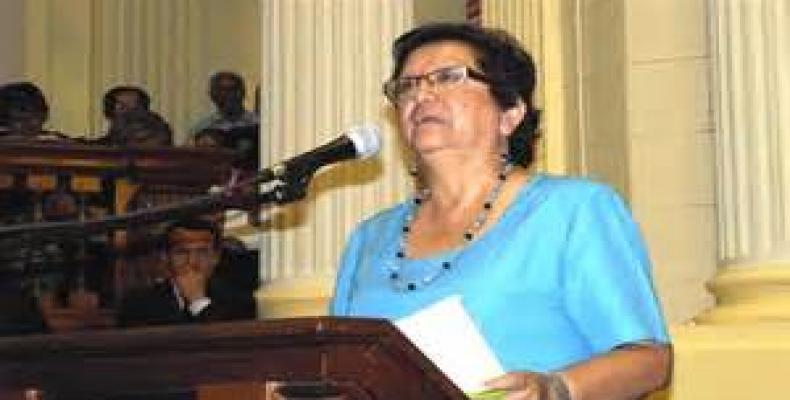Lima, February 17 (RHC-Mercopress) -- Political powers in Peru are stalling vital reforms to end corruption in its electoral system, Congresswoman Rosa Mavila told teleSUR Monday.
Mavila, also president of the parliamentary commission in charge of investigating the influence of drug trafficking in politics, says the commission is proposing penalties for the infiltration of drug money in politics and for those parties that have elected officials sentenced for drug connections.
However, Congress has not yet set a date to discuss the 11 legislative projects proposed to address electoral reform.
Peru has seen a crisis among its political parties involving the infiltration of illicit funds into the electoral system. Mavila says that money laundering from drug trafficking can be seen during election campaigns.
Analysts say the infiltration of drug money into politics is facilitated by the weakness of electoral institutions, including parties that lack ideological pillars to attract supporters, as well as internal democratic procedures to represent the will of constituents.
Political analyst Pedro Francke says the country’s political structures have all but disappeared: “There aren't political parties anymore, but a type of franchises, which, during elections sell their spots in their electoral lists to get back their investments."
For Francke, a good proposal is public financing for political parties, because it would discourage the interference of private legal or illegal funds but it needs to be established with fairness for small and new political movements.
Francke also supports the proposal to make political parties more responsive to the electorate via mandatory internal, open, and transparent primary elections. However, as the 2016 elections approach, few congressional representatives seem to be willing to discuss reforms.


